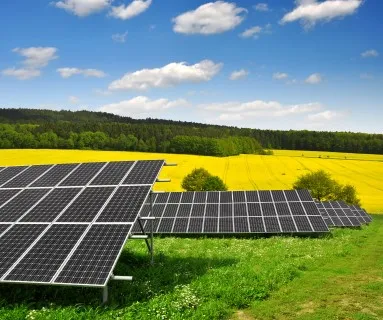
Thailand's non-hydro renewables capacity to surge to 8.2GW by 2026
Biomass and solar sectors are predicted to dominate.
Thailand's renewables industry - particularly the biomass and solar sectors - will expand rapidly over the coming decade, as environmental policy implementation and the increasing cost-competitiveness of renewable energy technology drive deployment, according to BMI Research.
This promising outlook for Thailand's renewables sector is reflected in our Renewables RRI, as Thailand outperforms the global average score across all indicators.
Thailand is emerging as an attractive destination for renewable energy investment, as the government looks to reduce the country's reliance on gas-fired power generation and incorporate other sources into the power mix, including renewable energy.
Here's more from BMI Research:
According to the country's power development plan (PDP) 2015-36, Thailand seeks to reduce its dependence on gas-power generation from the current level of 64% to around 30-40% by 2036, with an estimated 15-20% coming from non-hydropower renewable sources.
In line with these ambitious targets, the government has introduced a number of policies to support growth in the industry and encourage investment.
These include feed-in tariffs, tax incentives and energy production payments. We expect these strong fundamentals to drive growth in Thailand's non-hydro renewables sector over the coming decade.
We forecast non-hydro renewables capacity to increase from an installed capacity base of around 5.1GW (our 2016 estimate) to 8.2GW by the end of our forecast period in 2026. We expect the biomass and solar sectors to dominate the renewables capacity mix.








![Cross Domain [Manu + SBR + ABF + ABR + FMCG + HBR + ]](https://cmg-qa.s3.ap-southeast-1.amazonaws.com/s3fs-public/styles/exclusive_featured_article/public/2025-01/earth-3537401_1920_4.jpg.webp?itok=WaRpTJwE)
![Cross Domain [SBR + ABR]](https://cmg-qa.s3.ap-southeast-1.amazonaws.com/s3fs-public/styles/exclusive_featured_article/public/2025-01/pexels-jahoo-867092-2_1.jpg.webp?itok=o7MUL1oO)









 Advertise
Advertise


